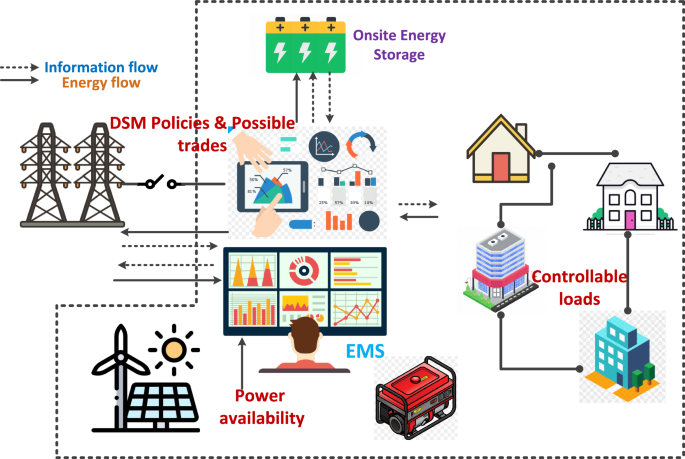The world is rapidly changing, and one of the quickest-developing fields for employment is in energy and trades. From energizing our homes to constructing new technology, these types of employment are gaining more significance each year. Most individuals in the world today are looking for jobs in the industry because it provides security, decent compensation, and the ability to do work that is important in the future. If you are a career hunter, studying energy and trades can create new paths for your professional life. Energy & trades job search

What Do Energy and Trades Mean?
Energy is the generation, utilization, and regulation of power. This encompasses careers in electricity, clean energy such as solar and wind, oil and gas, and even emerging clean energy technologies. Those who work in energy ensure lights turn on, power automobiles, and enable industries to function effectively.
Trades are, however, professional jobs that deal with practical work. They are electricians, plumbers, welders, mechanics, carpenters, and so on. Trades are referred to as “blue-collar jobs,” but they are the pillar of every nation’s growth. Without skilled trades, no buildings can be constructed, machines cannot be operated, and energy cannot be distributed.
Why Energy & Trades Are in Demand energy & trades job search
Most industries are experiencing a shortage of trained personnel. As retiring workers leave, businesses seek new people to replace them in key positions. All the while, the growth of renewable energy is producing entirely new opportunities.
Below are some reasons why these professions are expanding:
- Shift to renewable energy – Nations are transitioning from coal and oil to solar, wind, and electricity. There is a need for solar panel installers, wind turbine technicians, and energy engineers.
- Aging workforce – Most skilled tradespeople are nearing retirement. The younger generation that gets trained in trades will have plenty of jobs available.
- Low job insecurity – Energy and trades are necessary jobs. Regardless of tough economic conditions, individuals require electricity, water, and buildings.
- International demand – North America, Europe, Asia, or the world is where the need for energy and trades exists everywhere. Skills in these fields can provide you with opportunities to do work across the globe. Types of Jobs in Energy
If you are looking for employment in the energy industry, these are some options you could consider:

Electrical Engineers – Plan and keep electrical systems running.
Solar Panel Installers – Install solar energy systems on buildings and homes.
Wind Turbine Technicians – Maintain giant wind farms to generate clean energy.
Energy Analysts – Analyze data to make energy consumption more efficient.
Oil and Gas Workers – Drill for and process conventional energy resources.
Power Plant Operators – Ensure energy production operates safely and smoothly.
Types of Jobs in Trades energy & trades job search
Trades encompass a broad range of occupations, such as:
Electricians – Install and repair electric wiring and systems.
Plumbers – Install and repair water systems, pipes, and fixtures.
Welders – Fabricate and shape metals for construction and manufacturing.
Mechanics – Fix cars, trucks, and equipment.
Carpenters – Construct furniture, houses, and commercial buildings.
HVAC Technicians – Install and fix heating, ventilation, and cooling systems.
Not all of these positions will need a college degree, but they do need training and skills that are generally acquired through trade schools or apprenticeships.
Energy & Trades Skills Needed
To succeed in energy and trades, you will need technical abilities as well as personal strengths. Some key skills include:
Problem-solving and thinking critically
Technical understanding of tools and machines
Safety consciousness
Physical strength and endurance
Team work ability
Willingness to learn new technology
Employers also appreciate employees who are dependable, timely, and willing to learn continuously.
Advantages of Selecting Energy & Trades energy & trades job search
For employment seekers, energy and trades have several benefits:
Competitive wages – Skilled laborers are usually paid well.
Hands-on learning – You actually work on projects directly and witness tangible results.
Chances for advancement – With experience, you can advance to management or even become an entrepreneur.
Job satisfaction – Most employees in these sectors take pride in the fact that they are serving communities and fostering development.
International applicability– Energy and trade skills are applicable in nearly every nation.
How to Begin a Career in Energy & Trades
If this is your area of interest, consider the following steps:
- Study various options – Determine if you prefer to work in energy or a certain trade.
- Train – Search for trade schools, technical schools, or energy-specific programs.
- Obtain certifications – A lot of occupations need certifications to validate your competence.
- Find apprenticeships – Training under experienced workers is one of the best ways to learn the hands-on skills.
- Cast your net wide – Look for openings in neighborhood businesses, foreign companies, and even government initiatives.
